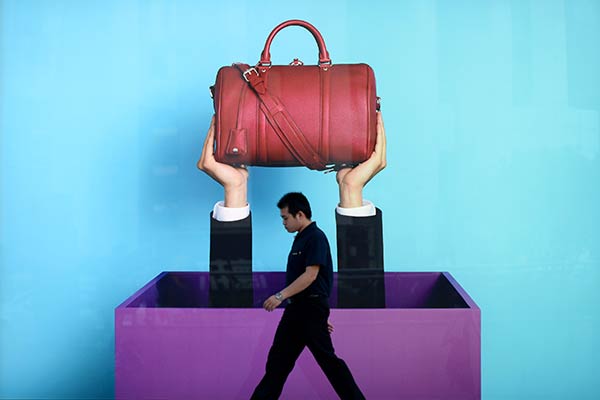Anti-graft drive supports resilient growth
Updated: 2016-01-12 07:50
By DAN STEINBOCK(China Daily)
|
||||||||
 |
|
A man passes Louis Vuitton's advertisement in Wuhan, Hubei province. [Photo / China Daily] |
On taking office, top leader Xi Jinping vowed to crack down on "tigers and flies", corrupt senior and lower-level officials. Over the past three years the anti-corruption campaign has been executed under the direction of the Central Commission for Discipline Inspection, the ruling Party's top anti-graft body, and its chief Wang Qishan.
But in early December, global financial giant BNP Paribas said the anti-corruption campaign has knocked 1-1.5 percent off the country's GDP annually over the past two years and continues to hit the economy. According to BNP Paribas, the anti-corruption drive has harmed investment and gift-giving, local governments' investment projects and foreign multinationals.
So, is the campaign against corruption really bad for economic growth?
In China, investment as a source of growth is declining while the share of consumption is increasing in relative terms. And that has little to do with the anti-corruption drive. Rather, it is the result of rebalancing away from investment and net exports toward consumption and innovation.
The idea that the anti-corruption campaign is curbing local governments' investment impetus is flawed. Instead, local governments are constrained by debt, which soared after the global financial crisis when excessive liquidity led to speculation in property markets. Local debt has amounted to more than $3 trillion. And yet, critics seem to blame the anti-corruption campaign for local governments' risky and opaque liabilities at a time when the CCDI is targeting corrupt local government officials.
Also, gift-giving has never fueled China's aggregate economy. In the past, it benefited those who received the gifts and those that gave the gifts in return for favors. The consequent "sweetheart" deals and exclusive relationships reduced government revenues and people's livelihoods.
Finally, those foreign multinationals that respect good governance continue to invest and thrive in China, whereas those that have used corruption to further their strategic objectives-including pharmaceutical giant GlaxoSmithKline-should be penalized. Both the private and public sector need integrity and good governance.
- Global health entering new era: WHO chief
- Brazil's planning minister steps aside after recordings revelation
- Vietnam, US adopt joint statement on advancing comprehensive partnership
- European border closures 'inhumane': UN refugee agency
- Japan's foreign minister calls A-bombings extremely regrettable
- Fukushima impact unprecedented for oceans: US expert

 Stars of Lijiang River: Elderly brothers with white beards
Stars of Lijiang River: Elderly brothers with white beards
 Wealthy Chinese children paying money to learn British manners
Wealthy Chinese children paying money to learn British manners
 Military-style wedding: Fighter jets, grooms in dashing uniforms
Military-style wedding: Fighter jets, grooms in dashing uniforms
 Striking photos around the world: May 16 - May 22
Striking photos around the world: May 16 - May 22
 Robots help elderly in nursing home in east China
Robots help elderly in nursing home in east China
 Hanging in the air: Chongqing holds rescue drill
Hanging in the air: Chongqing holds rescue drill
 2.1-ton tofu finishes in two hours in central China
2.1-ton tofu finishes in two hours in central China
 Six things you may not know about Grain Buds
Six things you may not know about Grain Buds
Most Viewed
Editor's Picks

|

|

|

|

|

|
Today's Top News
Liang avoids jail in shooting death
China's finance minister addresses ratings downgrade
Duke alumni visit Chinese Embassy
Marriott unlikely to top Anbang offer for Starwood: Observers
Chinese biopharma debuts on Nasdaq
What ends Jeb Bush's White House hopes
Investigation for Nicolas's campaign
Will US-ASEAN meeting be good for region?
US Weekly

|

|









